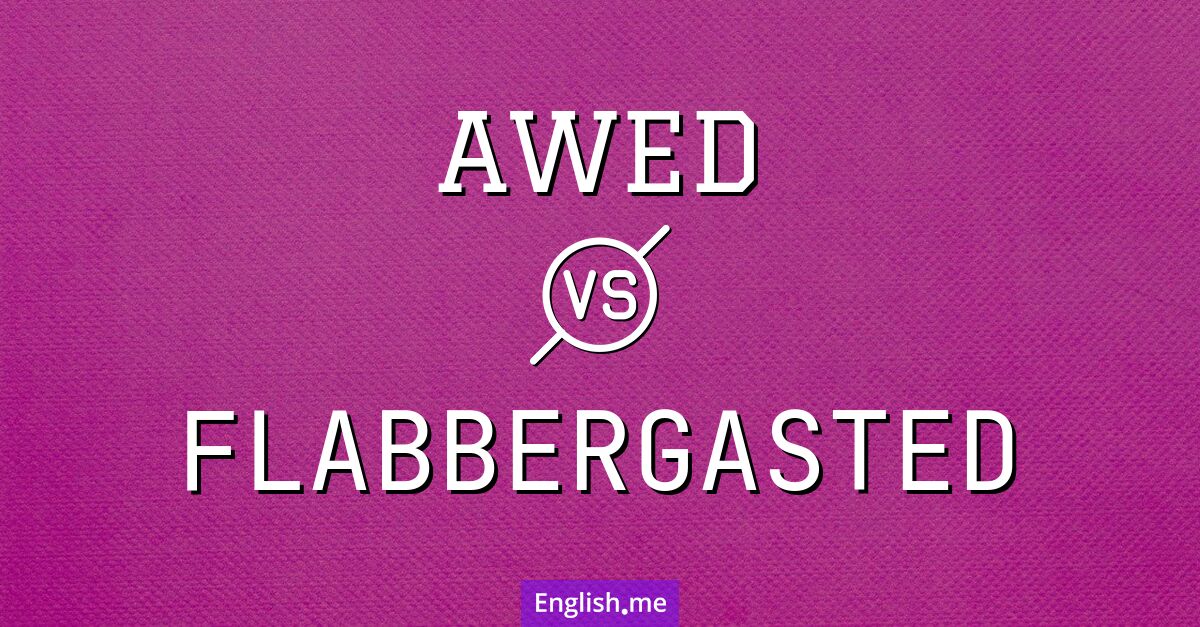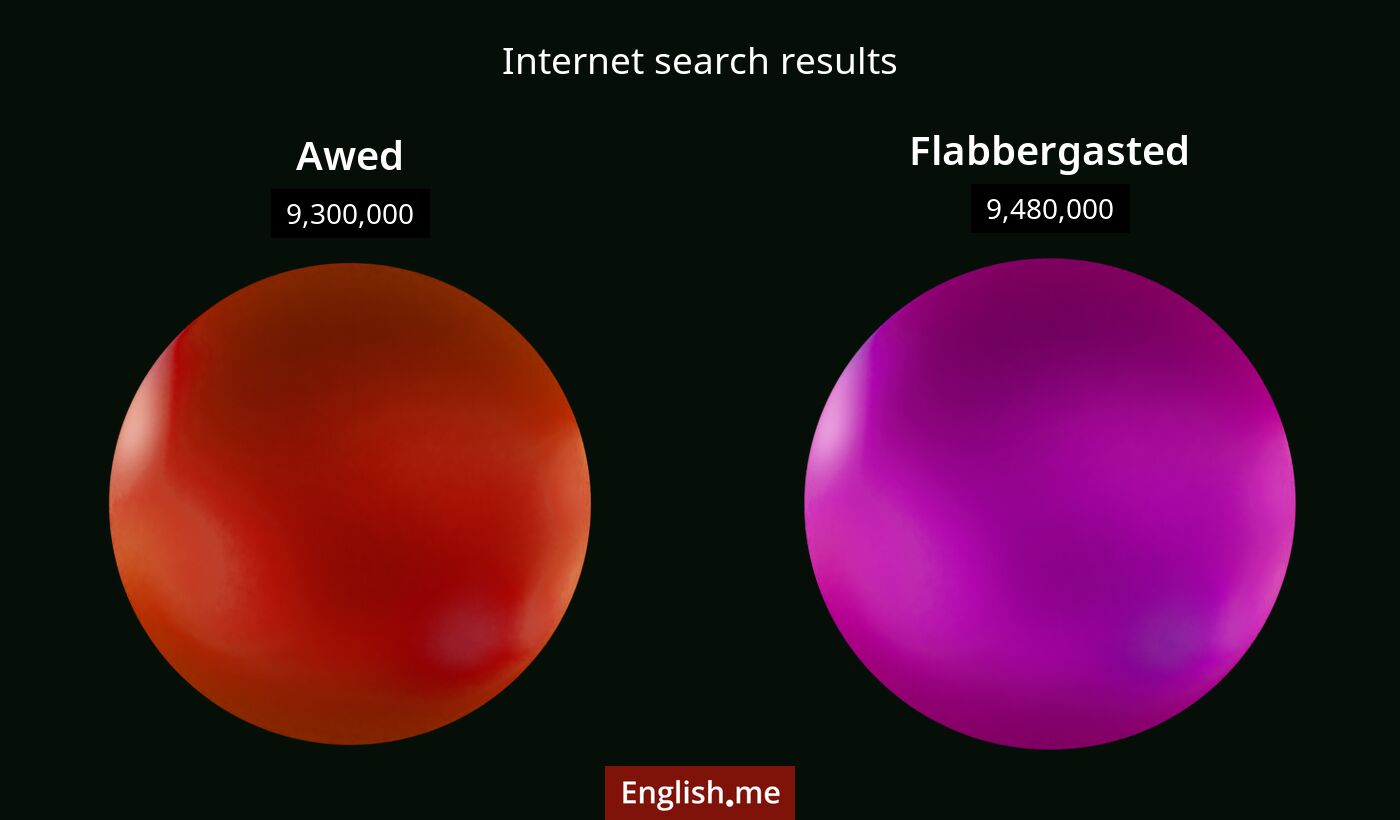"Awed" vs. "flabbergasted": unfolding the layers of astonishment
Reviewed and edited by  Lloyd Cooper 06/10/2024, 03:56
Lloyd Cooper 06/10/2024, 03:56
English.me team member

 What is similar?
What is similar?
Both "awed" and "flabbergasted" describe strong emotional reactions to surprising or impressive events or experiences.
 What is different?
What is different?
"Awed" typically indicates a feeling of wonder or reverence, often positive, while "flabbergasted" suggests being shocked or astounded, which can be either positive or negative.
 Which one is more common?
Which one is more common?

 Examples of usage
Examples of usage
Awed- She was awed by the majestic mountains.
- The audience was awed by the performer's skill.
- He stood in awed silence before the ancient ruins.
- I was flabbergasted to hear that he won the lottery.
- She was flabbergasted by the unexpected news.
- They were flabbergasted to learn about the sudden policy change.

 English
English español
español française
française italiano
italiano deutsche
deutsche 日本語
日本語 polski
polski česky
česky svenska
svenska Türkçe
Türkçe Nederlands
Nederlands